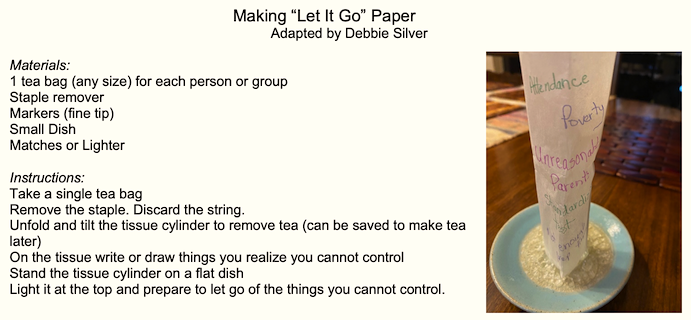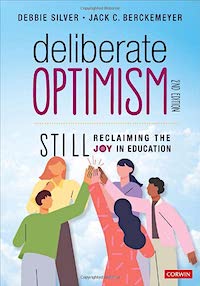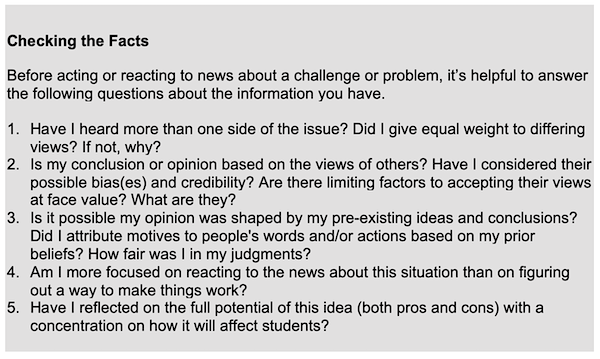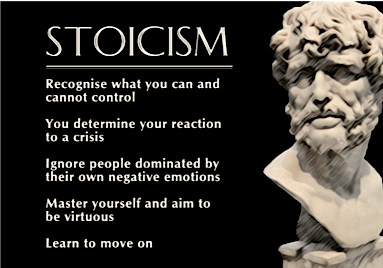4 Ways to Reclaim Our Optimism for Our Schools
By Dr. Debbie Silver

Presently schools are facing unprecedented challenges that defy even the most seasoned veterans. Some teachers are ending the year disillusioned by a perceived lack of adequate student progress or overwhelmed by seemingly unsolvable challenges with students, parents, and the community.
Many educators report feeling exhausted, underappreciated, frustrated, and alienated from the system they once knew and supported – even loved. Some are left at the end of the school year with the classic cliffhanger line from a TV series season’s closing episode, “What do we do now?” [Stage fades to black.]
So what DO we do now?
At the risk of sounding preachy, a positive reset starts with both personal and collective optimism grounded in commitment to uncovering basic truths, focusing on factors within our influence, recognizing and performing positive steps, and assuming a radical responsibility for each other and for our students.
Educators have authentic concerns and legitimate emotional needs that cannot be answered with one-dimensional “toxic” positivity platitudes such as, “Just be more awesome!”
My colleague Jack Berckemeyer and I are advocates for a practical (or as we label it, deliberate) optimism that calls upon our fellow education professionals to invest in a more positive, realistic 2023-24 school year. We can do this by following four basic principles for ourselves, our classrooms and our campuses.
Four Principles of Optimism:
- Gather accurate information.
- Control what you can.
- Do positive things.
- Own the profession.
Let’s look at each principle and see if you agree that optimism is actually possible.
1. Gather Accurate Information
Being able to marshal valid, trustworthy facts is a keystone to maintaining one’s optimism. Far too many of the conflicts among vested parties in education come from miscommunication and misinformation.
Leaders and educators must be diligent in seeking out what is factual and what is biased. Before acting or reacting, we need to gather as much information from as many perspectives as possible. It is imperative that we resist the “They” versus “Us’ mindset as we seek to understand the accuracy within news, the hearsay, and the hyperactive buzz that goes on in schools.
We should go through the chain of command as we seek precise information on any new mandate, plan, or questionable call. If the proper link in the chain does not provide clear-cut information, we go to each next higher level until a definitive answer is provided.
Fear of the unknown, constant threat warnings, and negative “hives” promote pessimism, loss of self-efficacy, and hopelessness. If we vow to carefully assess what we are told as well as what we tell others, we promote a realistic optimism. Below are a few guiding questions to ask ourselves or our group before allowing ourselves to become upset or to respond in a counter-productive way.
 2. Control What You Can
2. Control What You Can
The stoic philosophy of “control what you can control and let go of what you cannot” has been revived in recent years to help people learn to distinguish between fretting and investing in productive solutions.
We were told again and again throughout the COVID crisis that we had to stop agonizing over what the virus was doing to our students and to our schools and start taking concrete steps to control those aspects of our teaching we could control. Those who took that advice were often rewarded.
When we intentionally focus our attention and energy on solutions rather than on complaining, we are far more likely to get the results we want or at least make the problems less formidable.
It is important to clarify specific hinderances to our work. If we deem the problem as beyond our direct control (e.g., generational poverty), then we figure out how to deemphasize the unfixable by coping with it, going around it, or forming a positive plan of action to minimize its effect.
An illustrative activity to do individually or in a group is to make a list of circumstances we wish we could change, but for whatever reason it is impossible to affect their existence at the present time. Use the directions below to create a release of control ceremony. You can buy “wish paper” on the internet, but we science teachers discovered a less expensive method for creating our own magic paper. Prepare the magic paper as directed below.

3. Do Positive Things
Identifying the things we cannot control is an opportune time to reframe our focus on what parts of education we CAN control. Sometimes even well-meaning educators can suffer an individual or a collective sense of futility. We just stop trying to take action. Inaction can lead to fatalism, pessimism, isolationism, and boredom. If we don’t act, we fail by default and can never learn from the experience.
There is a kind of inertia involved in both action and inaction. Whereas inaction tends to reinforce itself with more inactivity, positive active steps tend to invigorate and perpetuate more action. As we plan for the next school year, it’s important to think about which positive aspects of our jobs we can enhance or rebuild or try for the first time.
Novelty can reignite our enthusiasm and give us something to look forward to. Some teachers select a mentor or a colleague they promise to text at the end of each school day with at least two positive things that happened in school that day. It’s a way to force ourselves to reflect, reframe, and be grateful.
The best way to move towards optimism is decisively to do those things we can to help our students and our fellow educators. No matter the situation, we can keep putting one foot in front of the other. We just start where we are.
- Can’t find the time to give every student personalized feedback? Give it to one or two students at a time.
- Don’t have time to call all the parents you need to contact? Call one.
- Can’t face learning all the new technology? Learn to do one new thing.
- Bothered by the catty remarks made in the lounge? Stand up for someone.
- Upset over the legislature’s proposed education bill? Write or call your representative.
Recognizing even small progress in ourselves can build momentum and hope. Even if we make a mistake, doing something brings with it a certain kind of strength. Making a plan, sticking to it, and analyzing the results is energy restoring. Optimistic educators are doers.
4. Own Our Profession
It’s time to take a radical responsibility for our profession. Radical responsibility means that we seek to solve problems rather than allocate percentages of who is responsible for what. We uphold our profession and take 100% responsibility for our part in any given problem.
Rather than excusing, rationalizing, justifying, or assigning blame, we can look at our school’s challenges and say, “I am a member of this school community, and I am willing to do whatever I can to help improve the situation for all of us.”
It’s not just about our personal classrooms or our assigned duties. Radical responsibility dictates that every adult on campus looks after every student with a shared accountability.
Likewise, we step up and help those teachers who are new or who may be struggling. We listen to more experienced or more capable colleagues who have much to teach us. We hold ourselves accountable, but we also hold our colleagues to high standards and a shared value system.
Yes, it’s hard to give constructive feedback to each other because often we are not sure we are ready to receive it ourselves, but it is time for teachers to “police our own ranks.” Until proven otherwise, we should assume best intentions in each other and practice grace with our colleagues as well as our students.
And finally, maybe is it time to adopt the policy of other professions where they refuse to speak negatively about their peers or their institutions (at least in public). Maybe we could make a practice of uplifting team and staff members in person and when they are not around.
Let’s stand up to the bashers
When we stand up to the education bashers by talking about the positive things that are happening in our classrooms, in our schools, and in our districts, we uplift both our profession and ourselves. We need to take the same pride in proclaiming our profession that we do when touting our favorite sports team.
It’s time to take our power back. For those looking to reclaim their joy in education, these four principles of choosing optimism are a good start to what we can do now.
Lights up! Action! New season!
Jack and I would love to hear your ideas for promoting optimism in education. Please share your comments below.

Debbie’s many other MiddleWeb articles include the widely read “Empowering Our Kids to Motivate Themselves.” Follow her on Twitter and visit her website for more resources and information about her speaking and PD services.


































I like all that you shared. I especially like the ideas presented in #3 “Do positive things. It reminds me of the “starfish”, You can not help all of the starfish but you can make a difference for one.
Thanks for the comment, Lenny! I love the starfish analogy! You couldn’t be more correct! Keep choosing optimism!